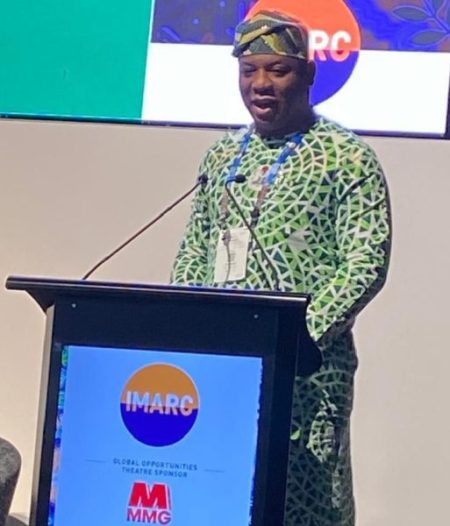16 December 2014, Lagos – The process for the award of contracts and licenses for oil and gas prospecting in Nigeria is tainted by corruption and collusion, according to a report, the 2014 Nigeria Natural Resource Charter (NNRC) Benchmarking Report.
The process, the report disclosed, is ruined with a high degree of uncertainty and political influence, a factor that has hampered the growth of the sector and the economy in general.
 The report, presented by the Nigerian Resource Governance Institute, NRGI, the Centre for Public Policy and Advocacy, CPPA among others, summarises the second benchmarking of Nigeria’s petroleum sector governance against the 12 precepts of the Natural Resource Charter.
The report, presented by the Nigerian Resource Governance Institute, NRGI, the Centre for Public Policy and Advocacy, CPPA among others, summarises the second benchmarking of Nigeria’s petroleum sector governance against the 12 precepts of the Natural Resource Charter.
The NNRC is led by a 14-member independent, multidisciplinary expert advisory panel, comprising Mr. Odein Ajumogobia, former Minister of Petroleum and Foreign Affairs minister; Mr. Adeola Adenikinju, a Professor of Economics from the University of Ubadan; Mr. Bode Agusto, former Director General of the Budget Office and Professor Akpan Ekpo, Director General, West African Institute for Financial and Economic Management, among others.
The report said, “For instance, where a company is perceived to have the best qualifications, based on the criteria set by, for example, the Department for Petroleum Resources (DPR), such a company may not emerge as the final bid winner. The predictability of the contractual process is significantly diminished as a result.”
The report further highlighted the fact that 67 per cent of marginal fields allocated in the 2003 licensing round are yet to produce a single barrel of oil, 10 years later.
Furthermore, it added, “Some licensing activity took place during the 2012-2014 period. On 28 November 2013, the Federal Government of Nigeria (FGN) through the minister of petroleum announced the opening of second marginal oil field licensing round, with a total of 31 fields on offer – 16 of them located onshore, and the remaining 15 on the continental shelf.”
The report lamented the fact that the preparatory activities and road shows following the announcement of the 2013 marginal fields, did not lead to any allocations as the government chose to repeatedly delay the proceedings and ultimately to postpone the round all together.
The report further stated that sector roles under the Ministry of Petroleum Resources are either not explicitly known or are so fluid that the same function may cut across multiple agencies, giving rise to confusion and conflict of interests.
“In monitoring and regulating the industry, for example, the DPR is not effectively independent and empowered to execute its oversight functions. Its decisions often conflict with the interests of NNPC especially since NNPC is involved in both the regulatory and commercial aspects of the industry.
For other companies operating in the industry, regulatory complications and compromises arise from the lack of adequate influence and capacity for the DPR to carry out its duties without bias,” the report noted.
In general, the report disclosed that situation in the Nigerian oil sector did not record any significant change from when the last report was presented, noting that all the indicators used in measuring Nigeria’s performance remained the same.
“Since 2012, there has been no progress made with respect to the Petroleum Industry Bill, PIB. The Bill’s provisions are not in the most ideal form, and it is stalling for a number of reasons including disagreements over its fiscal provisions, especially allegations of being a revenue bill; lack of resolution of challenges of policy discretion; and other regulatory issues with its proposed institutions,” the report stated.
Mr. Dauda Garuba, Nigerian Program Coordinator, NRGI, explained that the release of the report will help shape discussions ahead of the 2015 elections, entrench change and accountability in the polity.
According to him, the Charter is designed to see how countries rich in natural resources are managing the resources for the public good.
Continuing, he said, “The 2014 benchmarking exercise is not just another index of information; rather, its goal is to help Nigeria improve governance of the oil and gas sector and provide key stakeholders with a tool for action.”
– Vanguard



